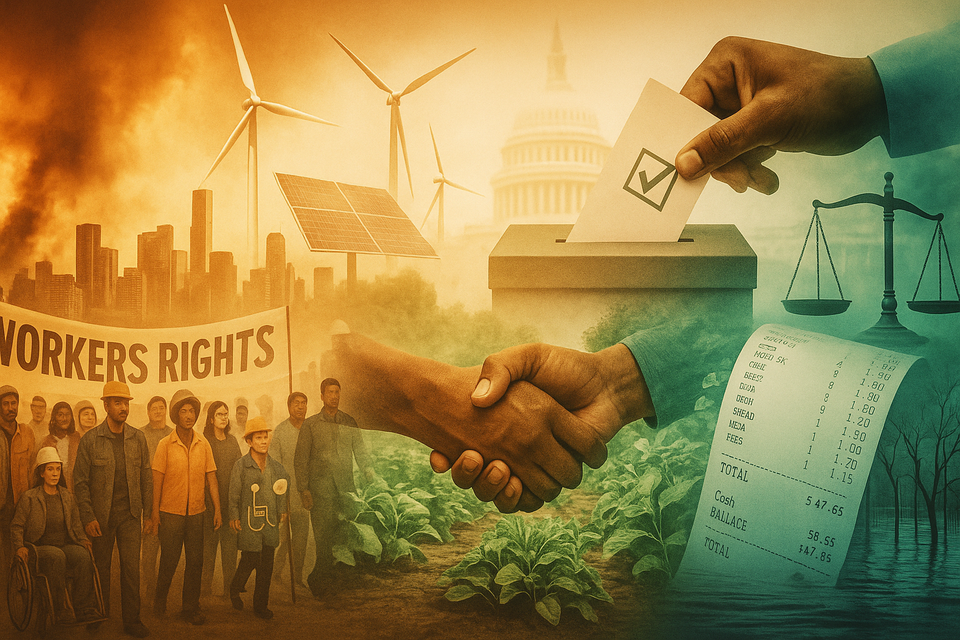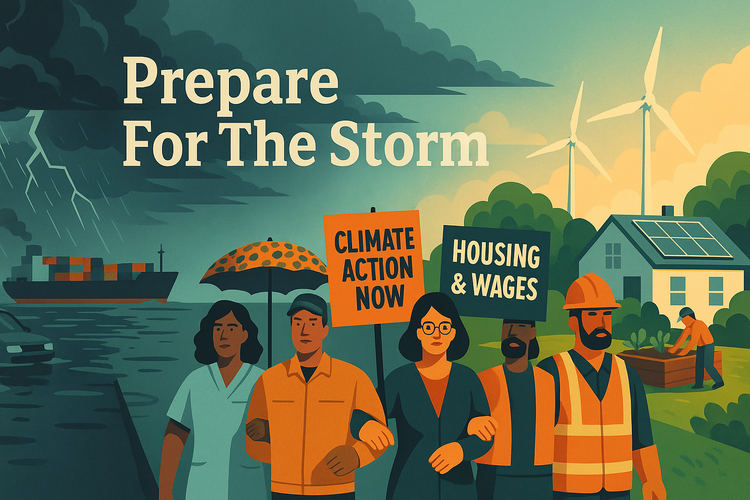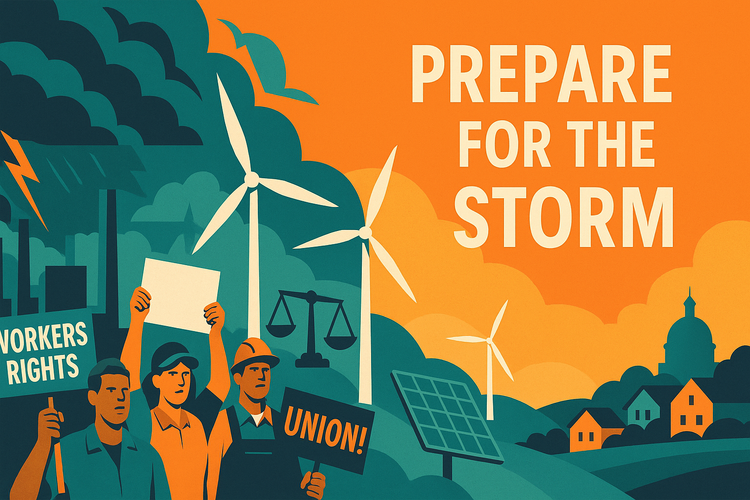Prepare For The Storm

Here’s your weekly round-up of what’s moving the needle on climate, workers’ rights, democracy, and everyday economics. This week features a double hit on climate transparency, an accountability win in court, a look inside a critical agency in chaos, and the latest numbers on prices that hit every grocery cart.
The EPA moves to hide who’s polluting our air
The Environmental Protection Agency proposed scrapping the Greenhouse Gas Reporting Program, which has required more than 8,000 major facilities to report annual climate pollution since 2009. Experts say the program helps the public, investors, and policymakers spot the biggest emitters and push them to clean up. The agency argues it’s “burdensome,” while former officials warn ending it would blind communities to the scale of local pollution and make climate action harder.
“The Greenhouse Gas Reporting Program is nothing more than bureaucratic red tape that does nothing to improve air quality.” — EPA Administrator Lee Zeldin. AP News
What you can do: Submit a public comment when the rule hits the Federal Register, ask your city or state to keep requiring emissions disclosure, and share this story with neighbors who live near industrial facilities.
Judge: the administration’s secret climate panel must follow transparency laws
A federal judge ruled that a behind-closed-doors “Climate Working Group” assembled to support rolling back core climate rules is subject to the Federal Advisory Committee Act. That means public meetings, records, and balanced viewpoints — basic sunlight that was missing. The case could block the government from leaning on a secret report to undo the EPA’s 2009 endangerment finding, the legal backbone of federal climate protections.
“The law requires that such advisory committees act with transparency, public participation, and consideration of balanced perspectives.” — Erin Murphy, Environmental Defense Fund attorney. Reuters
What you can do: Call your representatives and demand oversight hearings, then track this case’s next hearing date and submit watchdog questions to local reporters and city climate offices.
Inside Social Security’s turmoil, and why it hits the most vulnerable
A sweeping investigation reports that the team installed to run Social Security has ignored urgent fixes and upgrades while the agency struggles to serve seniors, disabled people, and survivors. Internal interviews paint a picture of drift and mismanagement at exactly the wrong time for millions who rely on basic benefits to eat, pay rent, and afford medicine.
DOGE “has ignored urgently needed reforms and upgrades at the Social Security Administration,” according to insiders and the former acting chief. ProPublica
What you can do: If you or family depend on SSA, document delays and errors, contact your member of Congress, and connect with local legal aid. Share the piece with seniors groups and disability advocates.
Wildfire smoke is a mass-casualty event we’re not counting right
New research covered this week shows wildfire smoke is far deadlier than previously estimated, with global deaths potentially in the high hundreds of thousands each year. The coverage highlights how fine-particle pollution from smoke penetrates deep into lungs and bloodstreams, raising risks for heart and respiratory disease far from the flames. It’s a reminder that the climate crisis harms people on clear days, too — and that indoor air quality, alerts, and public clean-air shelters are lifesaving infrastructure.
One researcher put it plainly: wildfire smoke is “a growing public-health emergency” that demands better monitoring and stronger protections for vulnerable communities. LiveNOW
What you can do: Get a HEPA filter for at least one room, create a clean-air plan with neighbors, press local officials for clean-air shelters and school filtration upgrades, and support policies that cut the fossil-fuel warming driving megafires.
Prices watch: the latest CPI reading and what it means for your wallet
The Bureau of Labor Statistics’ newest Consumer Price Index shows year-over-year inflation easing overall while essentials like food and fuel remain sticky for many households. Headline CPI has cooled compared with last year’s highs, but month-to-month moves still bite at the checkout line, especially for groceries and rent. Understanding the components helps us push for targeted relief that hits where families actually spend.
“The all items index increased on a monthly basis, with shelter a notable contributor.” — from the BLS release.
What you can do: Audit your top three expense categories, check for local utility assistance and SNAP/WIC eligibility if you qualify, and tell your city and state reps you want price-gouging enforcement, fair-rent protections, and living-wage policies.
Closing thought
The through-line this week is simple: when powerful interests try to turn off the lights, we turn them back on. Transparency, organizing, and local action make a real difference — for the air we breathe, the agencies we depend on, and the prices we pay. If this roundup was useful, please share it with a friend, like it, and drop a comment with the stories you want us to chase next week. Let’s keep each other ready.
The storm is coming. Will you be ready?
History has shown us that civilizations rise and fall, and the signs of collapse are all around us. You don’t have to face it alone. Join The Weathered Publication, a community of thinkers, doers, and realists preparing for what’s next.
Join us for free, give what you can, and be Prepared For The Storm.





Member discussion